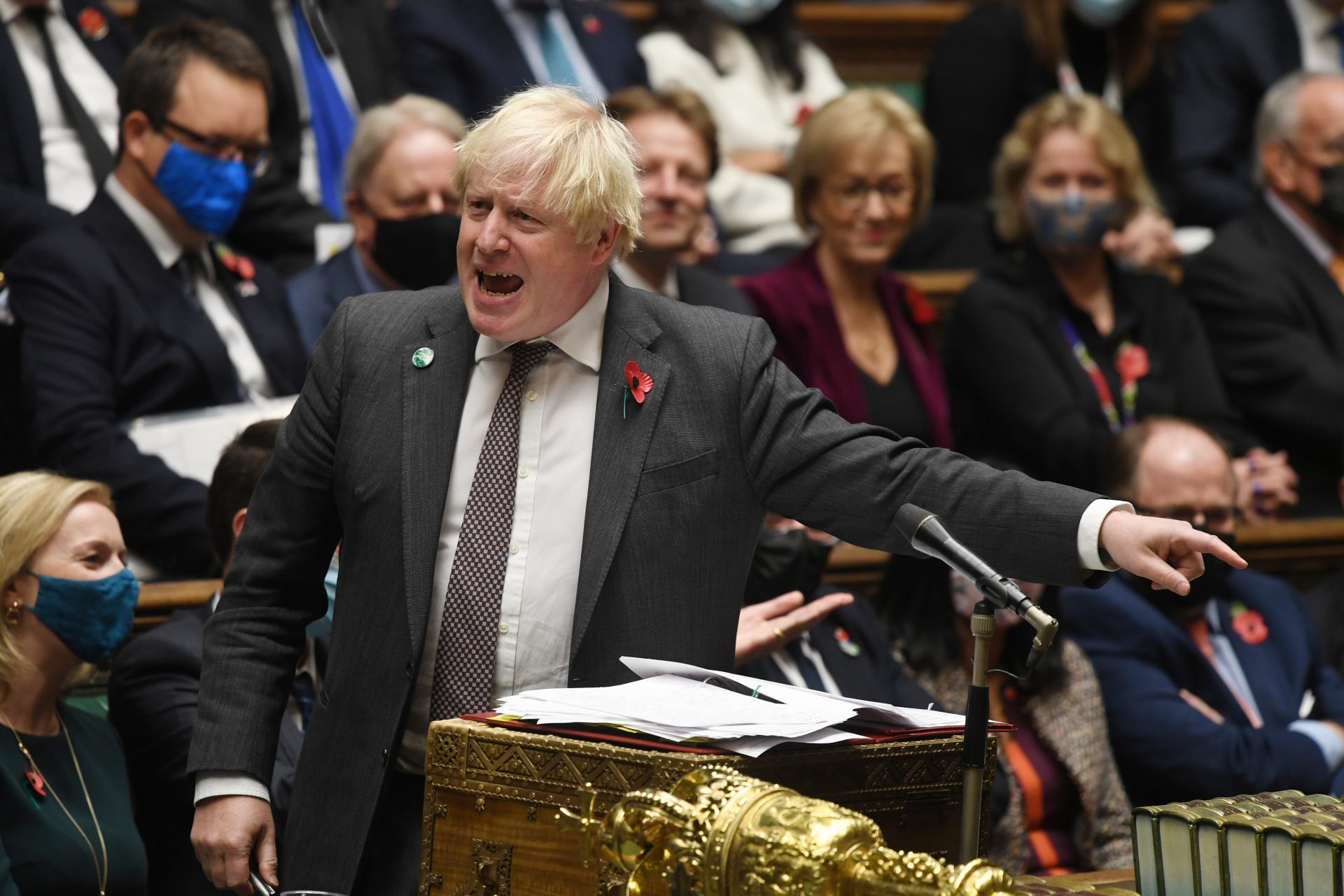When is an “egregious” breach of rules not, in fact, a breach? When your friends and colleagues rally round and say so, it turns out.
That was the case for former minister Owen Paterson. Amid accusations of corruption and a return to 1990s sleaze, the government chose to protect him from punishment over paid lobbying claims in a close vote described as “terrible for our democracy”.
Within 24 hours, a backlash was growing. The case has caused anger beyond Westminster, as Conservative constituents flooded MPs’ inboxes with complaints, and even the Daily Mail said the government had gone too far, with the headline “Shameless MPs Sink Back Into Sleaze”.
The vote created a furore in parliament, with more than a hundred Conservatives failing to vote or opposing, and it constitutes a worrying new example of the government acting with impunity in the face of rules and laws.
The standards committee had also been about to decide whether to go ahead with a fourth investigation in three years against Boris Johnson, this time over the funding of his fabled “gold wallpaper” Downing Street redecoration. There were also potential inquiries about lobbying related to the awarding of Covid contracts.
On Wednesday, sparking a wave of anger both inside and outside the Commons, Conservative MPs opted to rewrite the rules on holding errant MPs to account. They refused to endorse a Commons standards committee recommendation that Paterson be suspended for 30 days over an “egregious” breach of lobbying standards. He had been found by the cross-party committee to have used his position as MP to benefit two firms paying him £100,000 between them as a consultant.
Now a new Conservative-majority body will be set up to make recommendations to redraw the entire scrutiny process, but already Labour and the SNP are refusing to join. In theory, Paterson isn’t completely off the hook – his case will be looked at again next year, but it’s unclear how rigorous that process will be even if opposition MPs were to join.
An angry Labour leader Keir Starmer, in some of his harshest words yet, said that protecting Paterson and failing to kick out Rob Roberts, a Conservative MP found guilty of harassment, was corrupt.
“I am sick of people skirting around calling this out for what it is: corruption. Paterson was receiving money from a private company to ask questions on its behalf. Roberts was found to have made repeated and unwanted sexual advances toward a young staffer. Both of them should be gone – neither are fit to serve as MPs,” he wrote in the Guardian.
At PMQs Starmer’s deputy Angela Rayner tore into Johnson, who was back from making quirky speeches, falling asleep and failing to explain to CNN’s Christiane Amanpour why he didn’t wear a mask while sitting next to 95-year-old national treasure David Attenborough at COP26.
“In no other profession in our country could someone be found guilty by an independent process and just have their mates vote them back into the job,” Rayner said. “It’s one rule for them and one rule for the rest of us.” The Conservatives were “wallowing in sleaze.”
Holding her poise as Johnson blustered in return about fairness, Rayner cited the case of Roberts, whose escape from a sexual harassment charge had been due to a loophole. Then the government had maintained that rules could not be changed after the event, why are things different now?
Past standards commission rulings have been barely challenged, although the standards commissioner has irritated some Conservatives of late. Six MPs including Mark Francois and Iain Duncan Smith have had allegations against them upheld this year, while Johnson was cleared but criticized over the funding for his 2019 Caribbean holiday.
There had been sympathy for Paterson over the suicide of his wife last year, but even Conservatives were queasy about the vote. Father of the House Peter Bottomley was among those to defy the three-line whip. Others privately said Labour was right on this one. The rule on paid advocacy has existed in some form since 1695.
The fact that the vote was bulldozed through anyway highlights that the big issue isn’t even about the merits of this particular case, but the ever developing pattern of a government ignoring or changing rules and laws that get in their way — and the increasingly brazen way this is done.
The many examples of goalpost-moving include proroguing a cantankerous parliament during the Brexit talks and Johnson rejecting last year’s finding that Priti Patel had breached the ministerial code over bullying allegations. Who can forget his “let’s form a square around the Prittster” injunction?
When the interview panel ruled earlier this year that the vituperative former Daily Mail editor and Tory favourite Paul Dacre perhaps wasn’t quite the man to uphold media standards as the chair of Ofcom, instead of moving on, Number 10 decided that the whole process should be run again.
And of course there are the numerous threats to discard international laws and treaties in the current posturing with the European Union, including Dominic Raab’s threat to disregard the European Court of Human Rights and put right “incorrect” legal judgements.
The result has been the fall in the UK’s standing abroad in terms of respecting the rule of law and political trustworthiness, and not just by a peevish pre-election Emmanuel Macron. Such charges more often laid at the door of the likes of Poland, Hungary or Turkey.
Given that the government’s approach to the rule of law has not materially affected its poll ratings, Johnson may think that the view from abroad doesn’t really matter. Yet MPs said that even before the vote, furious emails from constituents had started to flood in.
Rayner evoked the spirit of former US President Donald Trump – another man with impatience for rules – to warn Johnson that this cannot last forever.
“He should learn the lessons,” she said, “that if you keep cheating the public, it catches up with you in the end.”










